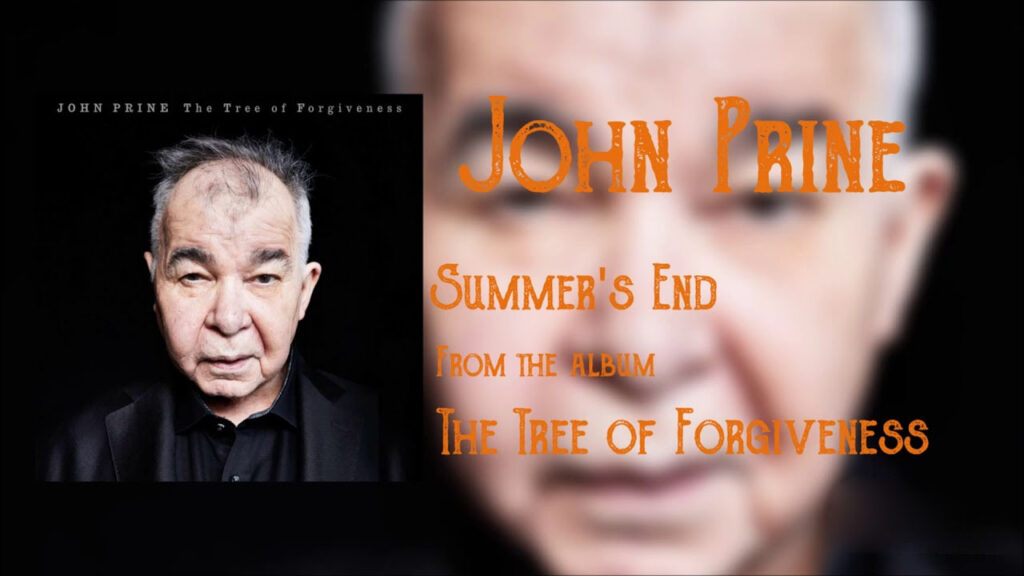
🌅 The Gentle Ache of Time Passing and Love Lingering: A Lullaby for the Soul
Oh, how the years fly by, bringing with them a certain clarity, don’t they? And few songwriters ever captured that bittersweet resignation, that deep, abiding humanity, quite like the late, great John Prine. When he released “Summer’s End” in 2018 on his album The Tree of Forgiveness—his first album of original material in over a decade—it felt like a late-career masterpiece, a stunning echo of the wisdom gleaned over a lifetime of observation. The song itself did not chart on the major Billboard Hot 100, but the album, The Tree of Forgiveness, was a triumph, peaking at Number 2 on the Billboard 200 chart and hitting Number 1 on the Top Country Albums chart. For an artist who was already a legend among his peers, this commercial success was a beautiful, well-deserved capstone to his recording career.
The very essence of “Summer’s End” is a tender meditation on mortality, companionship, and the swift, sometimes cruel, passage of time. It’s a gorgeous acoustic ballad that gently wraps a personal feeling of late-in-life love and anxiety with a devastating piece of contemporary American heartbreak. The song’s opening image—“The moon and stars hang out in bars just talkin’ / I still love that picture of us walkin’ / Just like that old house we thought was haunted”—instantly sets a scene of shared history, quiet intimacy, and a touch of the whimsy that was Prine’s signature. It speaks to any of us who look back at a photo, a memory, and realize how quickly the backdrop of our lives has changed.
But the real, heartbreaking gravity of the song reveals itself in its additional layer of meaning, specifically through its accompanying music video. While the lyrics alone are pure, poignant poetry about the end of a season becoming a metaphor for the approach of one’s own end—as his wife, Fiona Prine, noted, comparing their shared life to moving into a “third season”—the video gave the song an immediate and powerful connection to the opioid crisis ravaging American communities. The visual narrative, directed by Kerrin Sheldon and Elaine McMillion Sheldon (known for their documentary Heroin(e)), focuses on a family shattered by substance abuse. This powerful dedication was personal: the video was specifically dedicated to Max Barry, the son of former Nashville Mayor Megan Barry, who died from an overdose in 2017. Prine’s use of the seemingly simple phrase, “Come on home,” in the chorus, suddenly expands beyond a personal plea between lovers. It becomes a resonant call to the lost, the addicted, and the broken pieces of a community yearning for their loved ones to find peace, to find safety, to find home again before their “summer’s end” arrives too soon.
It’s this dual nature—the profoundly personal and the searingly societal—that elevates “Summer’s End” into one of Prine’s finest later works. His voice, weathered but warm, and the ethereal backing harmonies provided by Brandi Carlile, lend the song a haunting quality, a genuine ache that older readers, in particular, will recognize. It’s a song for sitting on the porch as the daylight fades, feeling the cool air of autumn approaching, and acknowledging that life, like a great love, can feel too short, and the things that break the heart of the world often arrive “faster than we wanted.” It reminds us that even when the light is fading, the love and the stories—the ones we share and the ones we observe—are what truly endure.